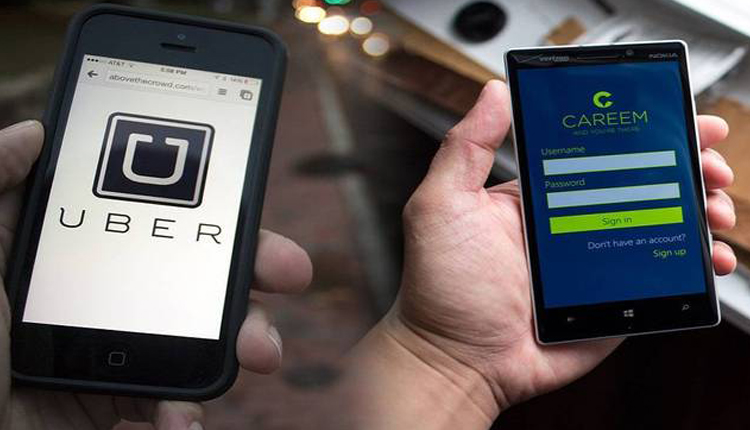Egypt’s parliament gives Uber, Careem 6 months to adhere to new law on ride-hailing services
Egypt’s parliament has given ride hailing services Uber and Careem six months to adhere to the new law regulating ride-hailing services in the country, which was approved by MPs on Sunday.
According to Article 2 of the law, ride-hailing services that use private vehicles or mass transport systems should legalise their status pursuant to the provisions of the law within six months.
The companies are required to pay a fee to regulate their status that does not exceed the yearly licensing fee, as determined by the prime minister.
Penal articles included in the law are not to be enforced on the companies before the end of the six-month period.
According to the law, a fine of between 200,000 pounds and 5 million pounds is to be imposed on anyone who operates a ride-hailing service without a license.
According to Article 3, the prime minister will put in place the regulations needed to enforce the provisions of the law based on suggestions by the cabinet or authorised bodies within two months of the issuance of the law.
Among these decisions is a licensing fee for drivers that does not exceed 1,000 pounds.
Parliament has postponed voting on several articles of the law following a disagreement inside the house over the annual cap of 10 million pounds for the licensing of operations and licensing fees paid by the company in cash.
Also postponed was Article 9, which stipulates that the companies are obliged to provide information on users to national security bodies.
The passing of some articles of the anticipated law comes after a court case filed against the San Francisco-based Uber and the UAE-based Careem.
Last April, a Cairo court of urgent matters blocked the implementation of a March court order to suspend the activities of the two companies in the country.
April’s court order gave the two companies the right to continue operations in country pending a ruling on the matter by the High Administrative Court, which is set to continue hearing the case on 12 May.
The case against the two companies was filed in February 2017 by drivers of traditional taxis, who accused the services of violating the traffic law by using privately-owned vehicles for commercial purposes. The case was filed against the two operators as well as the government.
The spread of the ride-hailing smartphone applications had sparked several protests from cab drivers in Cairo over their use of private vehicles to transport commuters, which they say violates traffic regulations.
Taxi drivers say they have been losing clients to the two services, as many people are opting to use the apps to commute in the capital and other cities.
Uber, first launched in San Francisco seven years ago, began operating in Egypt in November 2014. The service is now operating in more than 80 countries.
Its rival Careem operates across 13 countries and more than 90 cities in the Middle East and Asia. It also launched in Egypt in 2014.
In late 2017, Uber announced it would make investments of $20 million over the next five years in its support centre in Cairo, saying Egypt is one of its fastest-growing markets.
Uber had 2 million users and employed 60,000 drivers in Egypt in 2016, the company’s Middle East and Africa chief Pierre-Dmitri Gore-Coty told Reuters in October.
Source: Ahram Online


